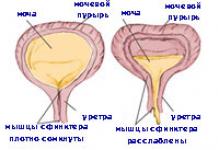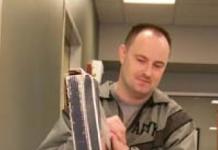Set expressions are an area where you can always learn something new and interesting for yourself. Today we invite you to familiarize yourself with the meaning of the phraseological unit “all blades”. We’ll also tell you something interesting about its origin.
Meaning and usage
The expression is most often used in pairs with the following verbs:
- run;
- rush;
- run away;
- rush;
- rush;
- rush;
- rush, etc.
The meaning of the phraseological unit “all blades” is as follows:
- Very quickly, at high speed.
- Under great strain, at the limit of possibilities.
- At the most accessible speed.
Analogues of the expression
Let's look at the synonyms of the phraseological unit "at full blast". They can be either individual words or other fixed expressions. The equivalence of the replacement here, first of all, depends on the context of a particular phrase.
Here are examples of common synonyms:
- Headlong.
- With all my might.
- With all my might.
- Headlong.
- With all sails set.
- What the spirit has.
- Fast.
- Like mad.
- The spirit is in everyone.
- Like a fire.
- Swiftly.
- Only the heels sparkle.
- Without hearing (underneath) my feet.
- Arrow.
- What is urine?
- Like a bullet.
- Like a mad cat.
- At full speed.
- Sticking out your tongue.
- Like a meteor.
- Like on wings.
- Headlong.
- Where did the agility come from?
- Playfully.
- One leg here, the other there.
- Let's run.
- Instantly.
- Without memory.
- Throughout the entire quarry.
- Three crosses in gait.
- Like a whirlwind.
- At full speed.
- Head over heels.
- Thurman and others.

Origin of the expression
We have analyzed the meaning of the phraseological unit “at full blast”. Surely the reader wants to know where he came from in our speech.
Although today the expression is in common use, and it can be used to characterize any fast movement - on foot, running, in a car, in a cart, on an aircraft or water transport, its first meaning was much narrower. He was only associated with traveling on horseback.
So why "all the way"? It is worth remembering another lesser-known phraseological unit - “all the front legs.” And he is also connected with the horse. When running fast, the animal throws its front legs high and powerfully. And if we remember the anatomy, we will notice that they are connected with the shoulder blades - areas on the back.

Surely the rider has noticed how quickly the horse’s shoulder blades move while galloping. Then these observations formed the basis of such an expression known today.
Sentences with the phraseological unit "all blades"
Let's look at a few examples of the use of the phrase in modern everyday life:
- “Realizing that I had overslept, I rushed to work as fast as I could. How did I manage not to hear a single alarm clock?”
- “The finish line clearly loomed before my eyes. The athlete, straining his last strength, decided to make the final throw - he ran, as they say, at full speed.”
- “They almost simultaneously heard an incomprehensible noise behind the bushes. Without having time to come to their senses, the friends, as if on command, rushed out of the forest at full speed.”
- “It was getting dark quickly. Realizing that soon it would be impossible to see anything, Pavel drove his horse at full speed towards the village.”
That's all we wanted to tell you about this expression. Now you know not only the meaning of the phraseological unit “at full blast”, but also its origin, an equivalent replacement.
Phraseological phrases. Dictionary of phraseological units.
They can be classified depending on what property of the word “fire” they characterize. If we consider “fire” in the meaning of flame, then we can write the following phrases:
To be afraid like fire of someone - what - to be very afraid, panicky.
Run as if from fire - in great fear, as from great danger.
Will go through fire and water for someone - ready to do anything for someone
Burn everything with (blue) fire - everything will be lost.
Playing with fire is about careless actions fraught with dangerous consequences.
Between two fires - about a hopeless, dangerous situation, when dangers and troubles threaten from both sides.
During the day with fire you won’t find anything outstanding or extremely rare.
Going through fire, water, and copper pipes is about a person who has experienced a lot, who is used to everything, or about a person with a complex and not entirely flawless past.
To add fuel to the fire is to aggravate some hostile relationship, to contribute to the strengthening of some hostile feelings or moods.
From the frying pan into the fire - from one trouble to another, even greater one.
There is no smoke without fire - everything has its own reason.
Light or lighting devices are also simply called fire:
Look at the light (go) to someone - go to someone for a while.
Lantern lights - the light of lanterns.
Night lights - street lighting
Light a fire - light a light.
The word "fire" is used in the sense of firing a weapon. In this case, the following revolutions are used:
A ceasefire means the end of hostilities.
To draw fire upon oneself is to draw accusations and criticism upon oneself.
The Eternal Flame is an unquenchable torch lit at the burial site of war heroes, at the Tomb of the Unknown Soldier.
In the fire of battles, war - in battles.
Firing point - a machine gun, a weapon in a firing position.
Fire training – training in the use of weapons.
Toss (add) the light - intensify shooting.
With fire and sword - with merciless cruelty, using the most extreme measures of violence.
Sometimes the word “fire” is used to describe a person’s inner experience:
“fire of the soul”, “fire of desires”, “eyes burn with fire” - expressions characterizing passionate desire.
The word “fire” is even used to refer to illness:
Antonov fire - gangrene, infection.
Proverbs, sayings, riddles.
There are many proverbs related to fire. Very often they reflect the willfulness and unbridledness of this element. Fire has a habit of burning its owners, like a poorly trained dog biting the hand that feeds.
The fire is hot, the child is painful.
Be on fire and get burned.
You lie down next to the fire, you will reluctantly get burned
An integral part of the proximity of fire to humans is the danger of fires. They always broke out unexpectedly and caused great destruction, which is reflected in proverbs.
The fool will burn down the house, he’s so glad of the fire.
A thief steals, throws down walls, and fire devours everything.
The ax will chop it off, and the fire will burn it down to the roots.
The fire is extinguished until it flares up.
But still, fire brought benefits, which was also not forgotten.
You can't dry a barn without fire.
Fire is trouble, water is trouble, and there is no worse trouble than neither fire nor water.
Smoke has always served as an integral companion of fire, so a number of proverbs have appeared that characterize this property of fire:
Fire cannot live without smoke.
He ran from the smoke and fell into the fire.
There is no smoke without fire.
Where the smoke comes from, where the fire comes from.
Sometimes proverbs reflected the peculiarities of the interaction of fire with other objects: birch bark, oil, iron.
Do not put fire and birch bark in one place.
Spinning like birch bark on fire.
Fill the fire with oil - just add fire.
Do not pour oil on the fire.
The poker is not afraid of fire.
In fire, even iron is fusible.
Against fire, even the stone will crack.
They tried to compare fire with other elements. At the same time, water, oddly enough, was not opposed to fire, but stood next to it. Fire characterized the masculine principle, and water – the feminine.
God gave free rein to fire and water.
Sea, fire and an unkind wife are three evils.
The husband is with fire, and the wife is with water.
Near water you will wet yourself, near fire you will get burned.
Don’t be friends with fire, water, or wind, but be friends with the earth.
The king is fire, and the queen is water.
Fire is strong, water is stronger than fire, earth is stronger than water, man is stronger than earth.
“Sleep, king - fire,” says the queen - water.
Don't joke with fire, don't make friends with water, don't trust the wind.
Fear fire, beware of water.
There is no ford in the fire.
You can't beg for a loan of fire.
Fire is a good friend, but a bad master.
Go to work - fire, and work - even fire.
Your own flame burns more clearly.
You can’t hide love, fire and cough from people.
Among other peoples:
The truth is that fire is not scary.
Don't take fire from a bad neighbor.
The burn from a word is stronger than the burn from fire.
You can't wrap fire in paper.
Anyone who has money will eat ice cream even in hellfire.
It is difficult to extinguish a nearby fire with distant water.
At night fire is a good friend.
Gold is tested by fire, man by labor.
The fire is never satisfied.
One log does not burn in a stove, two logs do not go out in the steppe.
Without arms, without legs, and crawling up the mountain (fire)
He slept in stone, stood up on iron, walked on wood, like a falcon flew. (fire)
The pig's sharp (golden) bristles (fire) are trembling.
A red cockerel is running along a perch (fire).
I am not on my own, but the strongest and most terrible of all, and everyone loves me, and everyone destroys me (fire)
If you feed him he lives, if you give him something to drink he dies (fire)
There are three brothers: one eats - he won’t get enough, the other drinks - he won’t get drunk, the third walks - he won’t get enough (fire, earth, water)
The firebird flies, drops golden feathers (fire)
Russian conspiracy:
“Fire, Fire! Take your light!” With the same Vedic, addressed to Agni, to whom five types of animals are sacrificed (Baltic), (Lithuanian) names of the God of Fire, derived from this root, and Latin ignis in expressions like ignis Vesta “fire of Vesta”
Use of the word FIRE in literature and art
In literature, fire is extremely often presented in a romantic light. Fire is what lights up the night when a lonely traveler wanders through the streets, fire is how the sun sets outside the window in the evening, fire is how the eyes of a lover burn.
The evening fire flickered in the distance -
There the clouds parted.
And again, as before between the thorns
My road is not easy. (A. Blok)
The fire of desire burns in the blood,
Your soul is hurt by you,
Kiss me: your kisses
Myrrh and wine are sweeter to me. (A. Pushkin)
The scroll smokes and burns,
And the fire, hidden and dull,
Devours words and lines. (F.I. Tyutchev)
The Swedes are rushing through the fire of the trenches. (A.S. Pushkin)
“The fire is beating in a small stove”... (A. Surkov)
“Spark” (M. Isakovsky)
“How fire took water in marriage” - Evgeniy Andreevich Permyak
“Quick Fire” -Petr Katernichev
Use in art. Paintings
"Fire on the Sea" - William Turner
"Giraffe on Fire" - Salvador Dali
"Fire" - Giuseppe Arcimboldo
“Fire in the Forest” - Alexey Savrasov
“Night Lights” - Maxim Lanchak
“The Last Day of Pompeii” - Karl Bryullov
Film“Fire, Water and Copper Pipes” - director Alexander Rowe.
Project "Encyclopedia of one word of a word".
Conclusion.
Any dictionary is an educational work. You just need to develop the skills to consult dictionaries and read them with the greatest benefit for yourself. I. Khalturin wrote: “Is it really necessary to collect words? What's the point? Words are not berries, not mushrooms, they don’t grow in the forest, you can’t put them in a basket”...and it’s true, words don’t grow in the forest. But they live among the people, in different parts and regions of our great land, they are born and die, they have parents and children.
I looked at the word FIRE in the most general sense: “the connection between the word and life, which an explanatory dictionary will help us discover.” I wanted to show that a dictionary is a means of understanding the world. I used all types of dictionaries in my work and came to the following conclusion:
The word fire has always been part of the active vocabulary of the Russian language and still attracts attention. It is often found in folklore and fiction, but this word is rarely present in the names of newspapers and magazines. The word fire is polysemantic, has “friends” - synonyms and “enemies” - antonyms. I think it’s useful to at least sometimes immerse yourself in the history of a word, to trace its life.
Of the 25 (100%) students surveyed, 23 (92%) know that the word FIRE has several meanings, 2 (8%) students know one meaning.
|
Number of students |
Number of word meanings |
|
Total students surveyed |
Conclusion.
If we again recall the words of Zabolotsky: “Under the surface of every word a bottomless darkness stirs, then we can continue his thought with the words of Anna Akhmatova:
And that abyss beckons and pulls,
And you will never find the bottom.
And he will never get tired of talking
Its empty silence
And I would like to finish my work with a poem by Vladimir Soloukhin.
When you want to say a word,
My friend, think about it - don’t rush.
It can be harsh
It was born from the warmth of the soul.
It flutters like a lark,
Then he sings with mourning copper.
Until you weigh the word yourself
Don't let him fly.
You can add joy to them
And poison people's joy.
It can melt ice
And crush the stone into crumbs.
It will give or rob,
Maybe inadvertently, maybe jokingly.
Think about how not to hurt them
The one who listens to you.
Bibliography
1 T.F. Ivanova. New spelling dictionary of the Russian language. Bustard. Russian language MEDIA. 6th edition, stereotypical. About 40,000 words. 2009.
2.A. P. Guskova, B.V. Sotin. Popular dictionary of the Russian language. Explanatory - encyclopedic. 4th edition, stereotypical. Moscow. Bustard. Russian language. MEDIA. 2008
3.P.Ya.Chernykh. Historical and etymological dictionary of the modern Russian language in 2 volumes, 9th edition, stereotypical. Moscow. Bustard. Russian language. MEDIA. Volume-1. 2009.
4.V.I.Dal. Explanatory dictionary of the living Great Russian language in 4 volumes. Volume 2. Moscow. Bustard. Russian language. MEDIA. 2008.
5.Comprehensive dictionary of the Russian language. Edited by Doctor of Philology, Professor A.N. Tikhonov. 4th edition, stereotypical. Moscow. Bustard. Russian language.MEDIA.2009.
6.Encyclopedia. Russian language. 2nd edition, revised. Editor-in-Chief Yu.N. Karaulov. Moscow. Scientific publishing house "Bolshaya Rossiyskaya".
7.Reverse dictionary of the Russian language. About 125,000 words. Publishing house "Soviet Encyclopedia". Moscow. 1974.
8. O.S. Akhmatova. Dictionary of homonyms of the Russian language. Publishing house "Soviet Encyclopedia". Moscow. 1974.
9. New spelling dictionary - a reference book of the Russian language. Over 107,000 words. Editor – compiler V.V. Burtseva. 7th edition, stereotypical. Moscow. Bustard. Russian language. MEDIA. 2008.
10.V.V.Lvov. School spelling dictionary of the Russian language. 6th edition, stereotypical. Moscow. Bustard. 2009.
11. R.P. Rogozhnikova, T.S. Karskaya. Dictionary of obsolete words of the Russian language. Based on the works of Russian writers of the 18th – 20th centuries. 3rd edition, stereotypical. Bustard.2009.
12.D.N.Ushakov, S.E.Kryuchkov. Orthographic dictionary. 51st edition, stereotypical. Moscow. Bustard. 2009.
13.L.I.Skvortsov. Explanatory dictionary of correct Russian speech. Moscow. Bustard. 2009.
14. A.D. Kurilova. New phraseological dictionary of the Russian language. More than 8,000 phraseological units. Bustard. Russian language. MEDIA. Moscow 2009.
15. Lexical difficulties of the Russian language. Dictionary - reference book. About 13,000 words. 6th edition, stereotypical. Moscow. Bustard. Russian language. MEDIA. 2010.
16. D. E. Rosenthal, M. A. Telenkov. Dictionary – reference book of linguistic terms. Moscow. "Enlightenment" 1985
17. Proverbs of the Russian people. Collection of V.I. Dahl. 4th edition, stereotypical. Moscow. Russian language. MEDIA.2009.
18.L.D.Chesnokva, S.P.Chesnokov. School dictionary of the structure and modification of words in the Russian language. 3rd edition, stereotypical. Bustard. Moscow. 2008.
19. Educational dictionary of difficulties of the Russian language for schoolchildren. 4th edition, stereotypical. Bustard. Russian language. MEDIA. Moscow. 2008.
20. Thematic dictionary of the Russian language. About 25,000 lexical items, grouped by topic. Edited by Doctor of Philology, Professor V.V. Morkovkin. 2nd edition, stereotypical. Moscow. Bustard. 2010.
20. V.P.Zhukov. Dictionary of Russian proverbs and sayings. About 12,000 Russian proverbs and sayings. 14th edition, stereotypical. Moscow. Bustard. Russian language. MEDIA. 2010.
21.Russian phraseology. Dictionary - reference book. About 1,500 phraseological units. 6th edition, stereotypical. Moscow. Bustard. Russian language. MEDIA. 2008.
22. New short dictionary of foreign words. Over 6,500 words. 3rd edition, stereotypical. Bustard. Russian language. MEDIA. Moscow. 2008.
Annex 1.
Dear friend! Research is taking place at school. By sincerely and fully answering the questions asked of you, you will provide invaluable assistance in solving this problem. The questionnaire is anonymous, you do not need to sign.
Rules for filling out the questionnaire.
After carefully reading the question, mark with a circle the number indicating the answer option that most fully reflects your opinion on this issue or enter the answer option in the specially designated space. Thank you in advance for your sincere and thoughtful responses.
Does the word FIRE have one or more meanings?
If it has multiple meanings, what meanings of this word do you know?
Appendix 2.
“Giraffe on Fire” by Salvador Dali.

“Night Lights” Maxim Lanchak.

"Fire at Sea" by William Turner.
"Fire" by Giuseppe Arcimboldo.

“Fire in the Forest” Alexey Savrasov.
“The Last Day of Pompeii” Karl Bryullov.
Every person has heard the expression “Prometheus’s Fire,” but not everyone knows what it means and where it came from.
Knowledge of such an expression speaks of a person’s high culture, study of mythology, and erudition. Therefore, to fully understand the meaning of the phraseological unit “Promethean fire”, you need to remember the content of the myth and analyze the events of the beautiful story about the hero and the gods who punished him.
Who is Prometheus?
Promethean fire (or Promethean fire) is a phrase whose roots go back to ancient Greek mythology. According to myth, Prometheus was a hero who helped the supreme god Zeus, but at the same time served ordinary people. He helped people learn to read, write, build ships and organize their lives.
The Myth of Prometheus
In order to make life easier for people, Prometheus stole fire from the gods and took it to ordinary people. This plot of the myth can be viewed not only literally, but also allegorically. That is, fire can symbolize the light of knowledge, which dispels fears, self-doubt and humility in the face of unknown future events. Therefore, the meaning of the phraseological unit “Promethean fire” is closely related to intellectual knowledge and creativity.

The punishment for Prometheus was very severe: Zeus ordered Prometheus to be chained to a rock, to which an eagle would fly every day to peck at Prometheus’s liver, which grew back again and again. The torture was endless, and it could only be stopped by the recognition of Prometheus, who would become the mother for the son of Zeus, capable of overthrowing his mighty father.
People who were grateful to Prometheus were worried about their hero, but could not help him. Only Hercules was able to free Prometheus and kill the eagle.
Phraseologism
The meaning of the phraseological unit “Promethean fire” is the desire to achieve high noble goals aimed at the benefit of other people through self-sacrifice. Based on the fact that Prometheus helped people develop science and art, the phrase is applied primarily to activities in these areas of life.
In a simplified sense, the meaning of the phraseological unit “Promethean fire” is the courage and nobility of a person. This can be said about a person who strives to work to educate society, supports creative aspirations, spending his time and energy on this to the detriment of his own success.
Today this expression is not used often. But the beauty of the myth and the deep meaning of the phrase are worth keeping it in your vocabulary and using it when appropriate in everyday life.
Like an arrow, as if on fire, as if mad, like mad, sticking out his tongue, three crosses on the gait, sticking out his tongue, as if on fire, one leg here, and the other there, without feeling his legs, in all shoulder blades, like a mad cat, head over heels, hastily, quickly, hurriedly, with... ... Synonym dictionary
Like a fire- Razg. Express Very fast, hasty and fussy. Anfisa Petrovna galloped up on horseback, as if to a fire. Oh, I kept thinking I'd be late. She drove the horse without rest (F. Abramov. Two winters and three summers). He hurried somewhere, as if to a fire. I just didn’t measure it while running... ... Phraseological Dictionary of the Russian Literary Language
like a fire- rush to run in a crowd, run away (foreign language) quickly, in masses. Not to the fire (foreign language) there is no need to rush Wed. He thought the whole market would come running to him, Like a fire. Krylov. Ant... Michelson's Large Explanatory and Phraseological Dictionary
Like a fire- How to rush to a fire, run in a crowd, come together (inn.) quickly, in masses. There’s no need to rush to a fire (in other words). Wed. He thought the whole market would come running to him, like a fire. Krylov. Ant... Michelson's Large Explanatory and Phraseological Dictionary (original spelling)
like a whirlwind- with the speed of lightning, without looking back, from all legs, as if on wings, where did the agility come from, only the heels sparkled, like a tumbler, like a meteor, head over heels, running, briskly, with the speed of lightning, without feeling your legs under you , a bullet, like a fire... Synonym dictionary
like a bullet- on one leg, with the speed of lightning, without hearing the feet under you, where did the agility come from, without feeling the legs under you, like a bullet, without feeling the legs under you, one leg here and the other there, only the heels sparkled, like a turman, running like to the fire, without looking back, briskly,... ... Synonym dictionary
like an arrow- like a whirlwind, as much as the spirit has, headlong, with all its might, with all its might, with all its agility, like an arrow, swiftly, like a whirlwind, like a whirlwind, with all its might, where did the agility come from, with all its might, without feeling your legs under you, without looking back , one leg here and the other there, a bullet, with... Synonym dictionary
like a meteor- without feeling your legs, like an arrow, with all your might, with all your spirit, quickly, at full speed, one leg here and the other there, swiftly, with all your shoulder blades, headlong, as if mad, as if on fire, with all your might, like a whirlwind , not hearing my feet, not feeling my feet, only my heels... ... Synonym dictionary
like mad- with all your might, like a whirlwind, swiftly, like an arrow, with all your might, with all your spirit, with all your agility, with all your strength, with all your might, only your heels sparkled, headlong, with all your strength, without hearing your feet beneath you, headlong, briskly, with lightning speed, at full speed, that... Synonym dictionary
Fire at the Ostankino TV tower- Fire at the Ostankino TV tower... Wikipedia
Books
- How to make anyone fall in love with you. A short theoretical course and the most complete practical guide, Lowndes Leil. How to make anyone fall in love with you. A short theoretical course and the most complete practical guide to the psychology of romantic love. Forget about Cupid with his arrows; here is a love potion... Buy for 728 RUR
- How to make anyone fall in love with you 3. Biochemistry of love Buy for 633 RUR
- How to make anyone fall in love with you 3. Biochemistry of love. How to kindle the slightest spark of sympathy into an all-consuming fire of passion and maintain the fire of love throughout your life, Lowndes Leil. Forget about Cupid with his arrows; Here's the love potion we've all been waiting for! The latest discoveries in the field of neurobiochemistry and cognitive science have revolutionized our understanding of nature...
Fire
uncontrolled combustion causing material damage, harm to the life and health of citizens, and the interests of society and the state.
Phraseological Dictionary of the Russian Language
Fire
Like a fire(run, fly, etc.) - very quickly, hastily
Not a fire- there's no need to rush
encyclopedic Dictionary
Fire
an uncontrolled combustion process, accompanied by the destruction of material assets and creating a danger to human life. See also Underground fires.
Glossary of terms of the Ministry of Emergency Situations
Fire
uncontrolled combustion causing material damage, harm to the life and health of citizens, and the interests of society and the state. In the field of occupational safety, occupational safety is characterized by the formation of factors hazardous to human health.
Glossary of terms and definitions for security and fire protection equipment
Fire
● Uncontrolled combustion causing material damage, harm to the life and health of citizens, and the interests of society and the state.
Source: GOST R 12.3.047-98
● Uncontrolled combustion leading to damage.
Source: ST SEV 383-87
Efremova's Dictionary
Fire
- m.
- :
- The spread of fire, accompanied by the destruction of property and everything that can burn.
- The location of such a fire.
- trans. Strong feelings that grip a person.
- trans. Rapidly developing events of great social significance.
- :
Phraseological Dictionary (Volkova)
Fire
Like a fire(run; decomposition) - very quickly, hastily.
He thought the whole market would come running to him, like a fire. Krylov.
Not for the fire (decomposition fam.) - there is nowhere, there is no need to rush.
Don't go to the fire, you'll be home in time.
Naval Dictionary
Fire
uncontrolled combustion process, spontaneous or as a result of enemy influence spread of fire, accompanied by the destruction of material assets and threatening the lives of people. Fire poses the greatest danger on a ship (ship) sailing alone on the high seas (on an airplane in the air), especially when metals (magnesium, titanium and sodium) ignite, requiring special means and methods of extinguishing. To successfully fight fires at military equipment facilities, it is necessary to carry out a set of measures aimed at maintaining constant readiness of all fire-fighting equipment and systems, especially automatic control and extinguishing.
Ushakov's Dictionary
Fire
fire r, fire, husband.
1. The spread of fire, accompanied by the destruction of property and anything that can burn. Fire in the house. Fire on the ship. There was a fire. A fire broke out. People run to the fire. Put out the fire. Forest fire. “First it was cut down by hail, then it was destroyed by fire.” A.Koltsov.
2. trans. A rapidly developing clash of some social forces, struggle, war, revolution. “To the grief of all the bourgeoisie, we will fan the world fire.” A.Blok. Fire of war. The fire of the communist revolution will engulf the whole world.
Ozhegov's Dictionary
POZH A R, A, m.
1. The flames spread widely and destroyed everything. Lesnoy village. Put out the village. How to run to the village (very quickly, hastily; colloquially). Not on p.(no need to rush, we’ll have time; colloquial).
2. trans., what. Usage in certain expressions to denote rapidly developing events of great social significance (high). P. war.
| adj. firefighter, oh, oh (to 1 value). Fire danger. Fire alarm (fire signal).
Sentences containing "fire"
As representatives of the capital's law enforcement agencies reported on Monday, the fire has now been extinguished.
The problem of creating fire-resistant textile materials used in aviation, automotive and other industries, for the manufacture of workwear, as well as in everyday life, is especially pressing, which is associated not only with material damage caused by fires, but also with the loss of human lives.


























